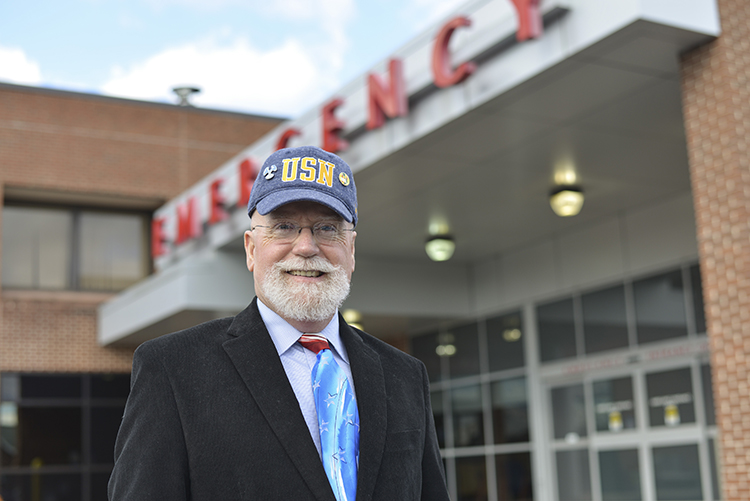St. Luke’s Offers Dissolvable Stent to Treat Coronary Artery Disease
Bethlehem, PA — 11/8/2016 — John Quigley was leaving his grandson’s football game in Perkasie on Oct. 26 when he suffered the first heart attack of his life.
 |
|
|
|
John Quigley received the region's first dissolvable stent at Stl. Luke's University Health Network
|
The pain in the center of his chest triggered a sequence of events that resulted in Quigley becoming the first patient in the Lehigh Valley to receive the recently FDA-approved Absorb dissolving heart stent, which is only available in the Lehigh Valley at St. Luke’s University Health Network’s Heart & Vascular Center.
“When I walked out of St. Luke’s University Hospital in Bethlehem, I felt like a million bucks,” said Quigley, 71 of Quakertown. “I felt like it never happened.”
Coronary artery disease affects more than 15 million people in the United States. Yet, there have been few advancements in the treatment of coronary artery disease over the last fifteen years. Before the Absorb dissolvable stent, manufactured by Abbott Vascular Inc., the most recent advancement was drug-eluting stents which helped prevent scar tissue that could occasionally build up around the metallic stents, which acted as scaffolding to keep a diseased artery open.
With the dissolving stent, patients receive the same benefits as the traditional metal stent without the concern of carrying hardware in the body. Like a metal stent, the Absorb drug-coated stent holds the clogged artery open and slowly releases medication to the diseased area. After blood flow is restored, the stent is naturally absorbed into the body (usually within two or three years), similar to dissolvable stitches. As a result, certain types of blockages that can occur with metallic stents are reduced, making additional interventions in the future easier to offer.
“It’s most ideal to leave no trace and by that I mean to leave no metal inside the artery,” said Christopher L. Sarnoski, DO, an interventional cardiologist who is also Medical Director of the Structural Heart Program at St. Luke’s University Health Network’s Heart & Vascular Center. “Particularly in younger patients, say patients in their forties, who unfortunately suffer a heart attack or need a stent to treat a blockage causing chest discomfort, the dissolvable stent will give us more options as the patient ages compared to conventional stents. Keeping the blood vessel free of metal allows us to keep further stenting and bypass surgical targets intact. It is better for everyone involved when the patient has more future options."
Dr. Sarnoski says the dissolvable stent is not necessarily for everyone. Each patient needs to be assessed before a determination is made. The location and size of the blockage as well as the current condition of the vessel are key determinants. In Quigley’s case, the blockage was in the right coronary artery.
After returning home following his grandson’s football game, the pain in his chest gained strength so Quigley’s wife drove him to St. Luke’s Quakertown Campus, where a clinical team quickly mobilized around him.
“I never felt afraid because everyone at St. Luke’s Quakertown had a job to do and they knew what it was,” Quigley said. “From Quakertown to St. Luke’s Bethlehem the entire experience was almost flawless. I couldn’t have asked for a better experience.”
Quigley maintains a healthy lifestyle and is not a smoker or a drinker so the heart attack took him by surprise. He will begin in November a three-month regiment with the St. Luke’s Cardiac Rehabilitation program to restore him to full health.
“I am so grateful to all the people I came into contact with at St. Luke’s. I owe them my life.”
In addition to Dr. Sarnoski, Peter R. Puleo, MD, Luis Tejada, MD and Raymond A. Durkin, MD, have all received training in installing the new device.


